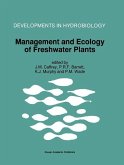Life originated and evolved in water. Later the The tropical countries where the need to under plants moved out of water, conquered the land and stand the natural ecosystems is far greater because became dominant over it. The evolution through they are under intensive pressure from develop the millennia resulted in enormous complexity of ment from a rapidly growing human population, form, tissue organisation, reproductive mechan have generally devoted much less attention to the isms and specialisation of taxa in different niches. studies of aquatic ecosystems. The Indian subconti At some stage during evolution, some plants devel nent is a well-recognised biogeographic region with oped appropriate morphological and physiological a distinct geological history, climate, soils and adaptations and reverted back to the aquatic and/ biota. It is also distinct in the history of human civilisation and cultures which have a profound bear or semi-aquatic habitat. These plants, perhaps with the exception of a few ing on the natural ecosystems. This book is in with beautiful flowers, have attracted little atten tended to provide the state of our knowledge of the tion from mankind. The fact that humans evolved aquatic and semi-aquatic vegetation in the inland in a tropical forest or savanna environment appears freshwaters of the subcontinent. The book covers responsible for a permanent bias in human atti only the herbaceous vegetation, since there is al tudes towards land and its biota.
Dieser Download kann aus rechtlichen Gründen nur mit Rechnungsadresse in A, B, BG, CY, CZ, D, DK, EW, E, FIN, F, GR, HR, H, IRL, I, LT, L, LR, M, NL, PL, P, R, S, SLO, SK ausgeliefert werden.









